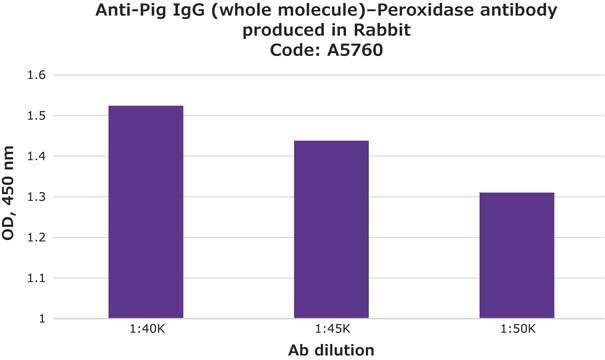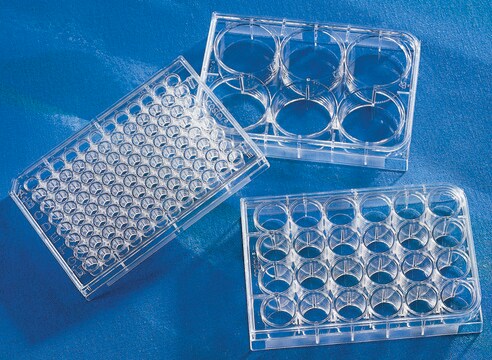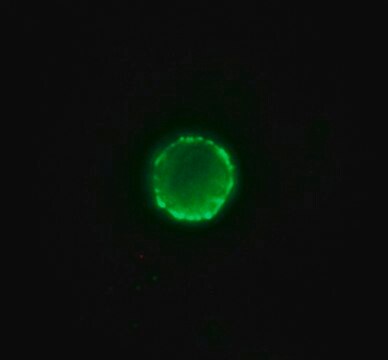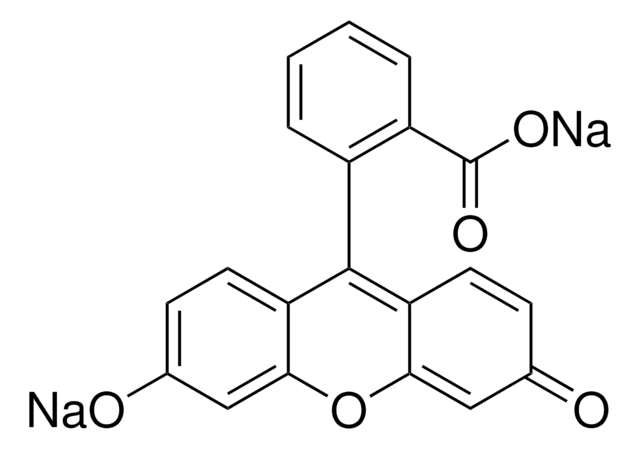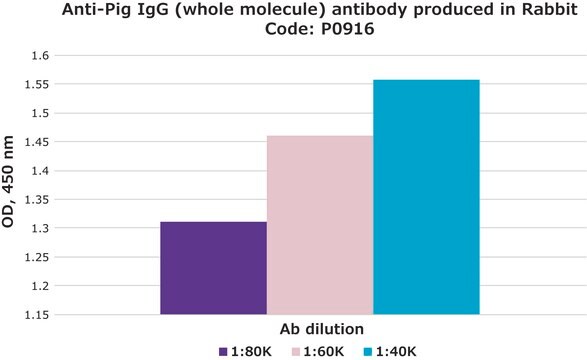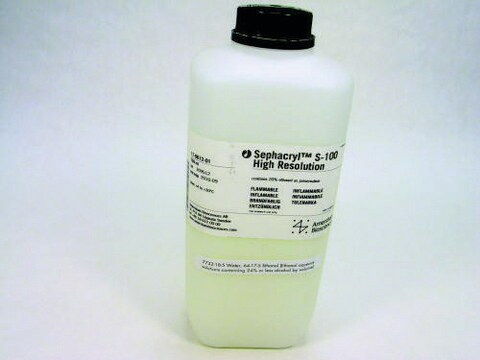F4762
Anti-Pig IgG (whole molecule)−FITC antibody produced in rabbit
IgG fraction of antiserum, buffered aqueous solution
Synonyme(s) :
Anti-Porcine IgG (whole molecule)−FITC antibody produced in rabbit, Anti-Swine IgG (whole molecule)−FITC antibody produced in rabbit
About This Item
Produits recommandés
Source biologique
rabbit
Niveau de qualité
Conjugué
FITC conjugate
Forme d'anticorps
IgG fraction of antiserum
Type de produit anticorps
secondary antibodies
Clone
polyclonal
Forme
buffered aqueous solution
Conditions de stockage
protect from light
Technique(s)
direct immunofluorescence: 1:32
Température de stockage
−20°C
Modification post-traductionnelle de la cible
unmodified
Vous recherchez des produits similaires ? Visite Guide de comparaison des produits
Description générale
Application
Actions biochimiques/physiologiques
Forme physique
Clause de non-responsabilité
Vous ne trouvez pas le bon produit ?
Essayez notre Outil de sélection de produits.
Code de la classe de stockage
10 - Combustible liquids
Classe de danger pour l'eau (WGK)
nwg
Point d'éclair (°F)
Not applicable
Point d'éclair (°C)
Not applicable
Équipement de protection individuelle
Eyeshields, Gloves, multi-purpose combination respirator cartridge (US)
Certificats d'analyse (COA)
Recherchez un Certificats d'analyse (COA) en saisissant le numéro de lot du produit. Les numéros de lot figurent sur l'étiquette du produit après les mots "Lot" ou "Batch".
Déjà en possession de ce produit ?
Retrouvez la documentation relative aux produits que vous avez récemment achetés dans la Bibliothèque de documents.
Notre équipe de scientifiques dispose d'une expérience dans tous les secteurs de la recherche, notamment en sciences de la vie, science des matériaux, synthèse chimique, chromatographie, analyse et dans de nombreux autres domaines..
Contacter notre Service technique